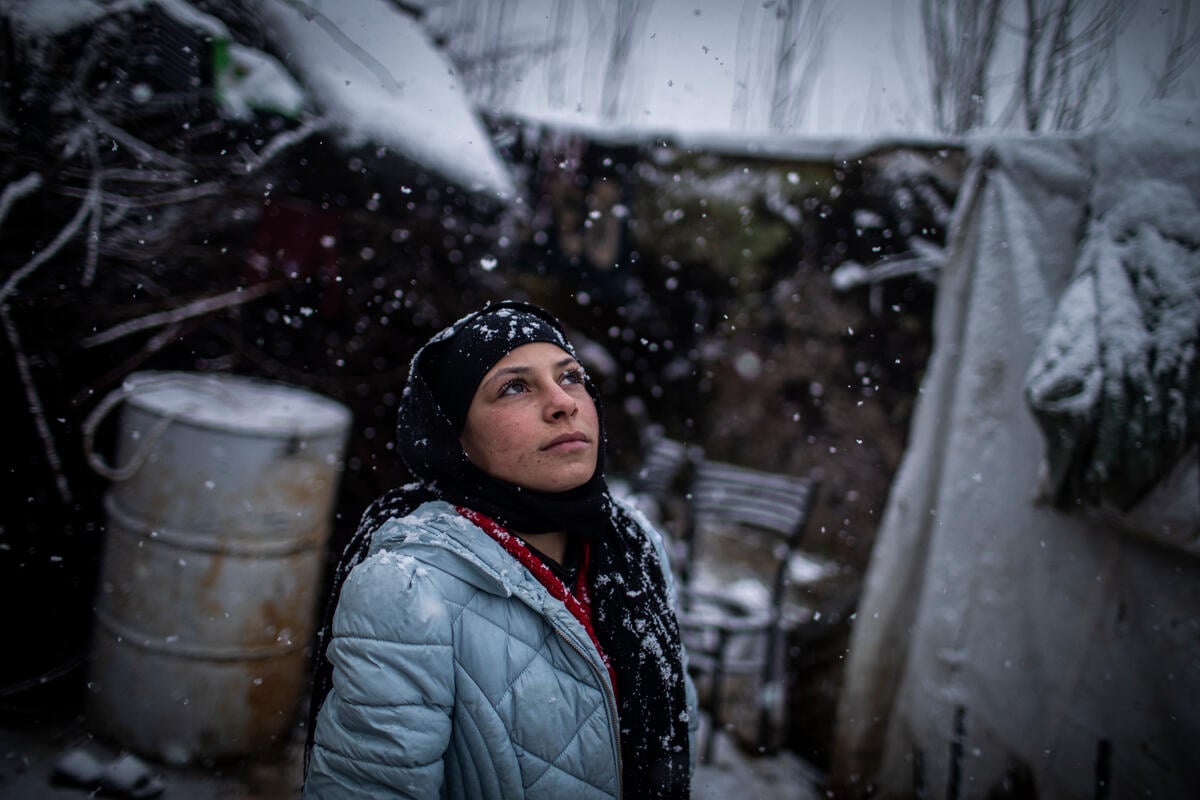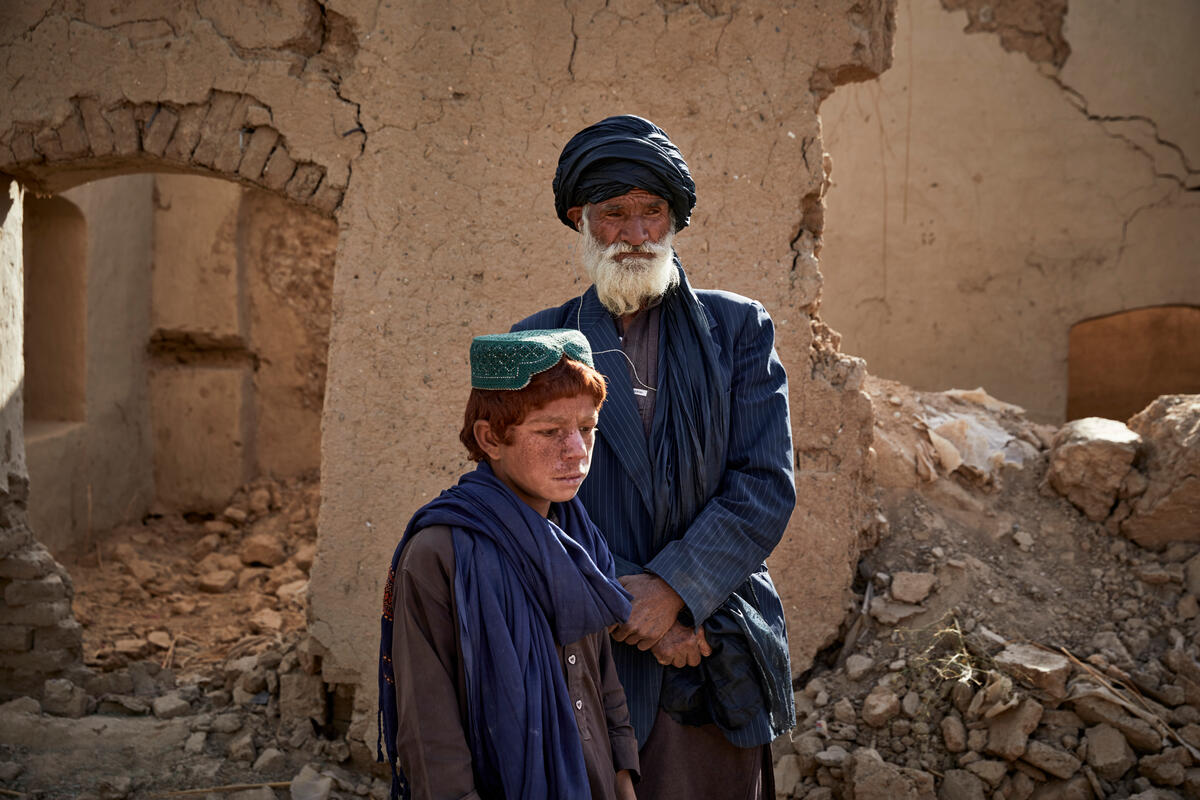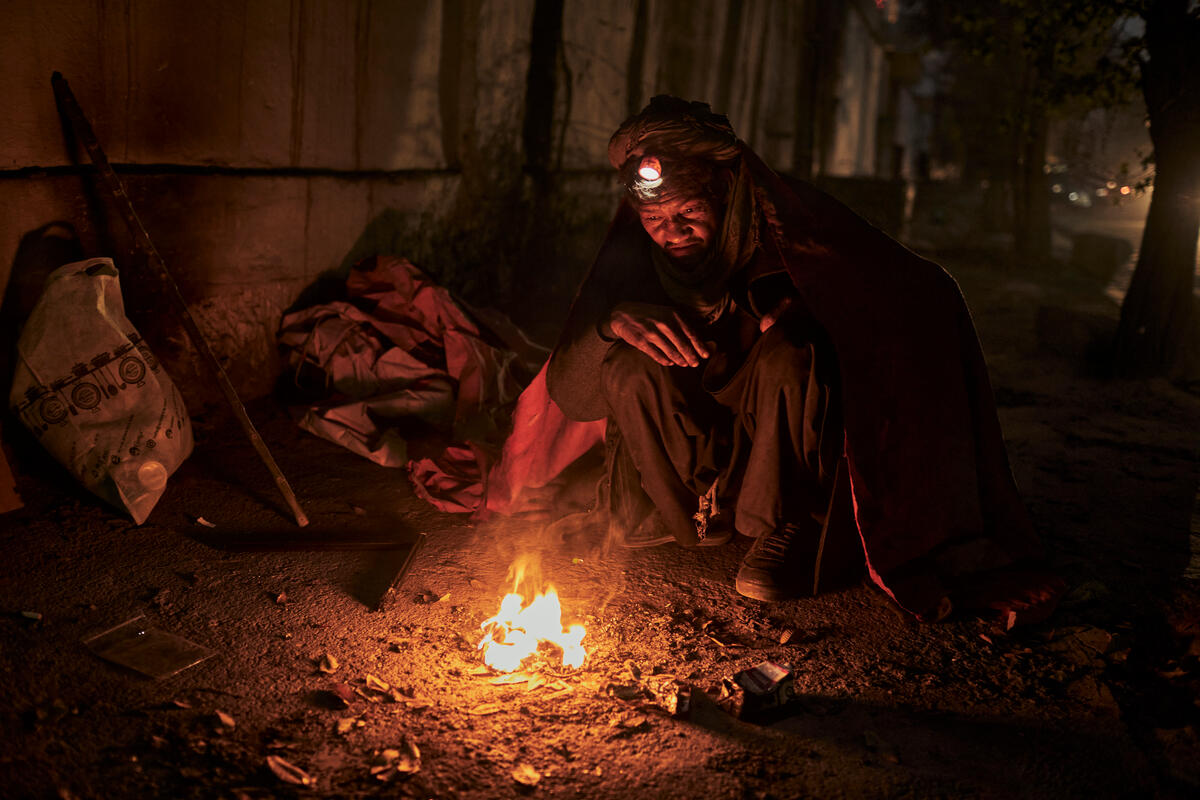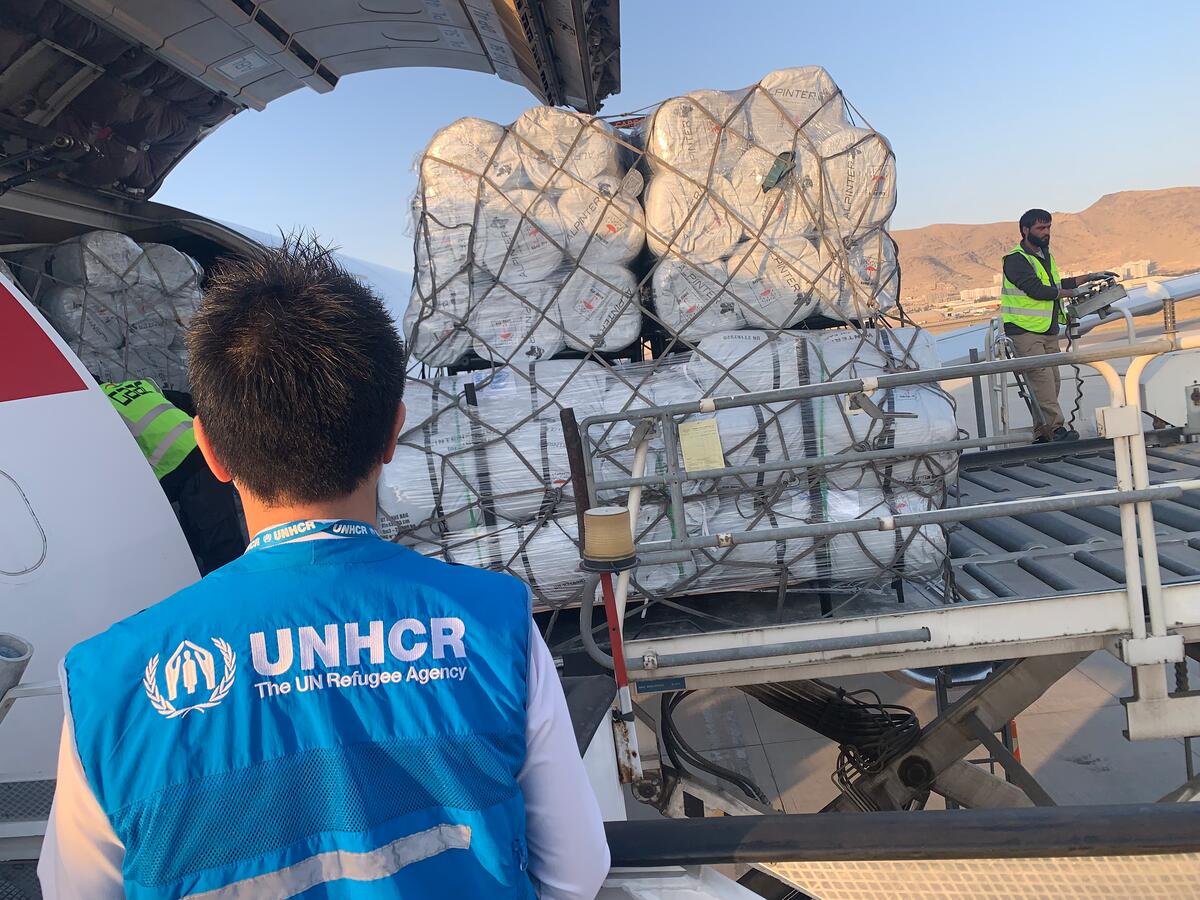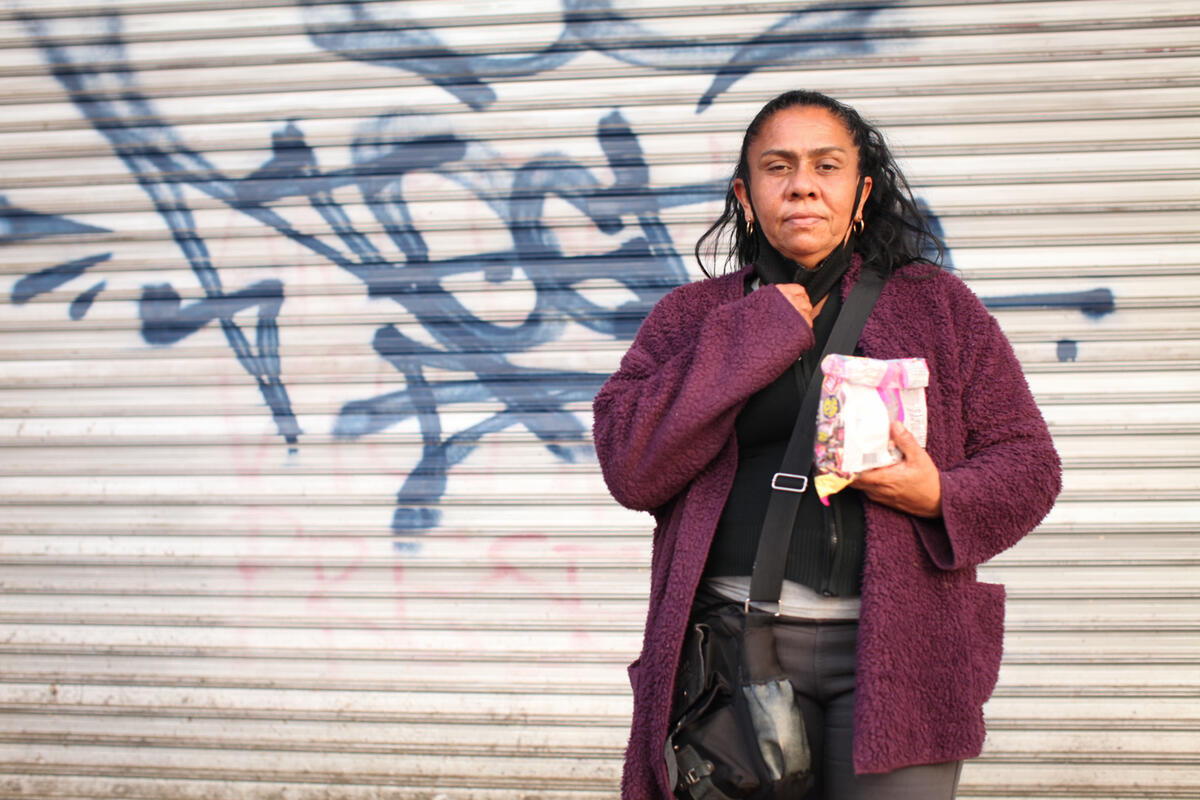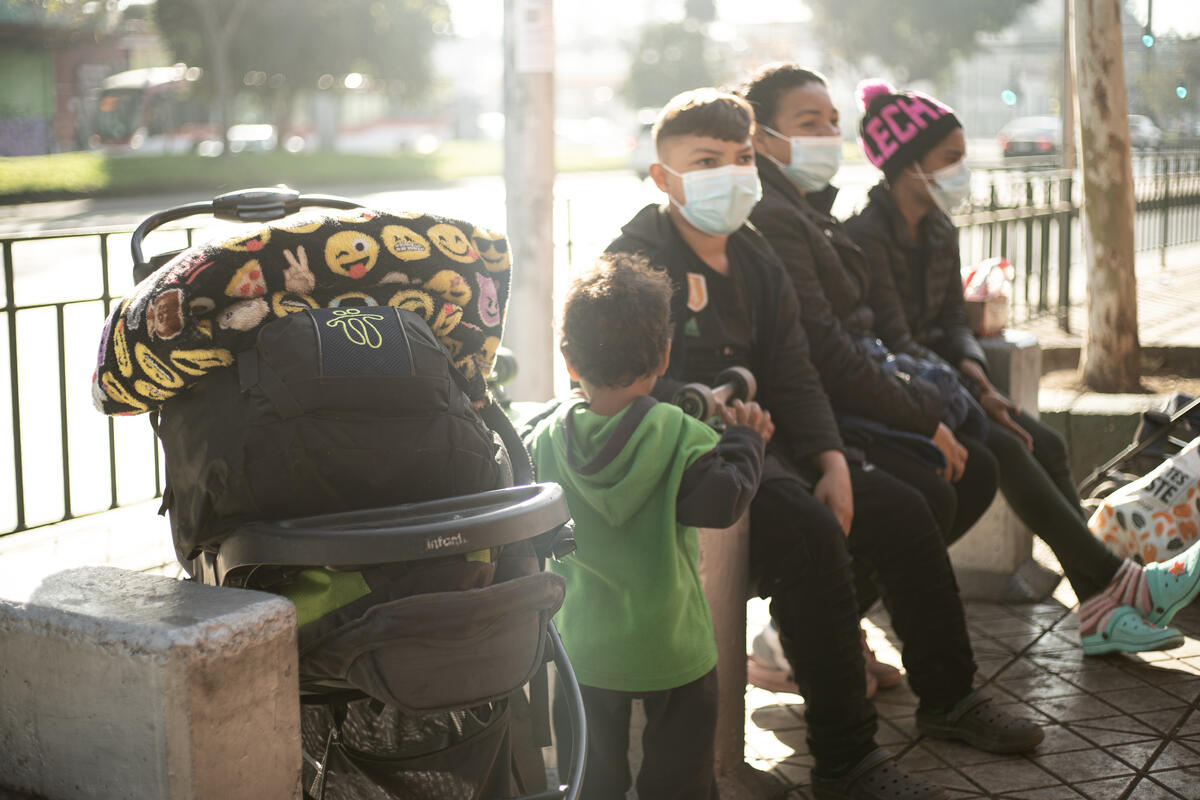UNHCR starts winter assistance to Afghans near Pakistan border
UNHCR starts winter assistance to Afghans near Pakistan border

CHAMAN, Pakistan, December 10 (UNHCR) - The UN refugee agency has started the emergency distribution of blankets to Afghans camped on the border with Pakistan to help them weather the approaching winter. This comes as officials from the two countries meet to discuss repatriation next year.
UNHCR today completed the distribution of blankets to Afghans living on the edge of the Pakistani border city of Chaman, where more than 19,000 people have been stuck in makeshift shelters since the Pakistani government closed its border to them in February. Each person at the squalid site received a blanket in addition to supplies that had been handed out earlier in the year.
To help them beat the cold - temperatures plunge below -10°C at night - the refugee agency is also distributing heating coal to the Afghans at Chaman and to the refugees in other camps established in Pakistan's Baluchistan province last year.
The agency is getting 121,000 more blankets to meet the needs of refugees in the Chaman region's other camps.
In addition, some Afghans at Chaman's makeshift border camp - also known as the "waiting area" - will receive 700 blankets for babies through the health centre run by Médecins Sans Frontières. The distribution of extra winter clothes is set to follow.
The unseasonably cold weather is adding to the hardship faced by thousands of internally displaced Afghans living in five makeshift encampments at Spin Boldak, a town just across the border in Afghanistan. Local sources said that 10 children have died in Spin Boldak' s squalid camps in recent days.
"It is truly sad news that these small children did not survive when the temperature dropped suddenly during the night," said Daniel Endres, UNHCR's deputy chief of mission in Kabul.
The refugee agency and the Afghan government dispatched six trucks on Sunday carrying 3,500 quilts to the displaced Afghans living around Spin Boldak, and another 28,500 blankets are on the way.
Winter is expected to hit especially hard at Chaman and Spin Boldak, where Afghans live in makeshift tents that are often little more than plastic sheets or rags sewn together. More than 19,000 of them were moved earlier this year to a temporary camp at Zhare Dasht in southern Afghanistan, where full assistance is available. Some 30,000 Afghans, however, prefer to stay on the border until their home areas are safe enough for return.
More than 1.5 million Afghan refugees have gone back to Afghanistan from Pakistan since UNHCR started helping them home in March. The pace of return has slowed since the start of autumn, but is expected to pick up again with the end of winter. Some 1.2 million Afghans are expected to return home in 2003.
To discuss next year's repatriation, Afghan Minister of Refugees and Repatriation Enayatullah Nazari is currently meeting with UNHCR and Pakistan government officials in Islamabad. Nazari plans to meet refugee representatives from camps in Pakistan's Baluchistan and North West Frontier provinces before returning to Kabul on Saturday.


